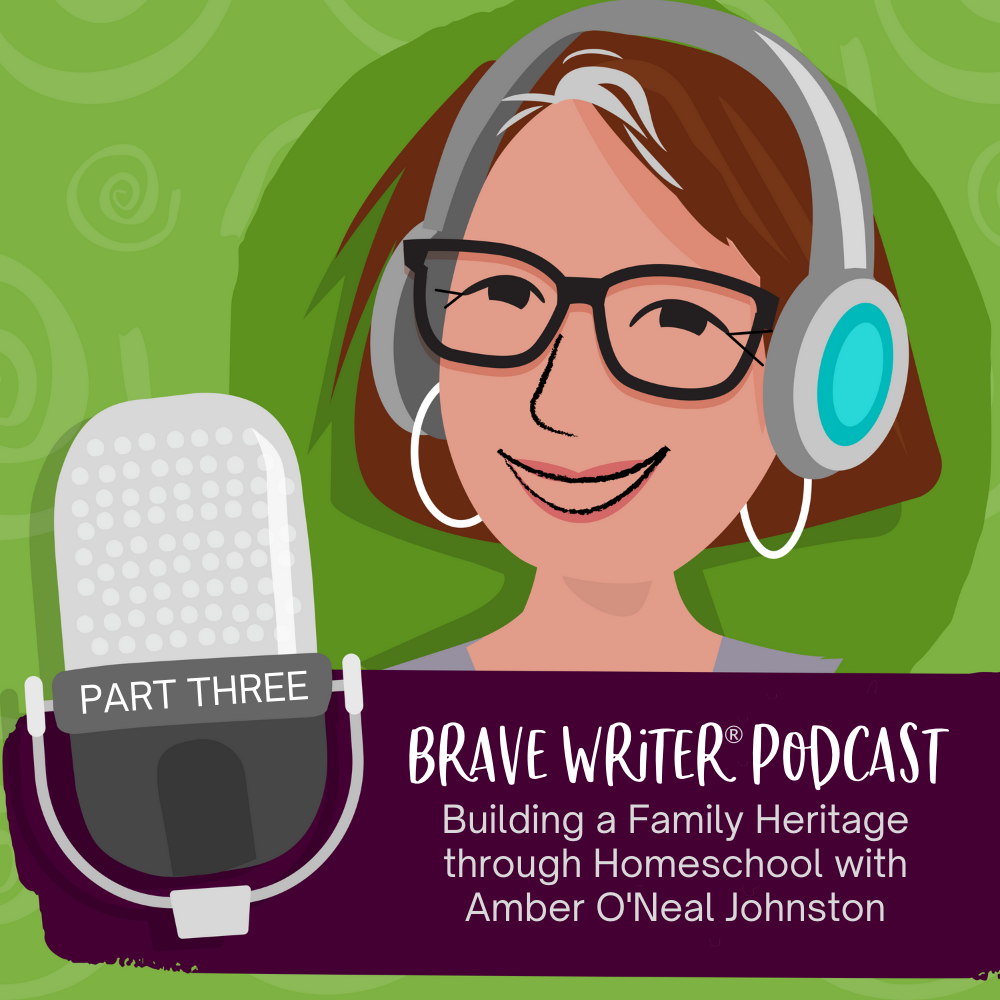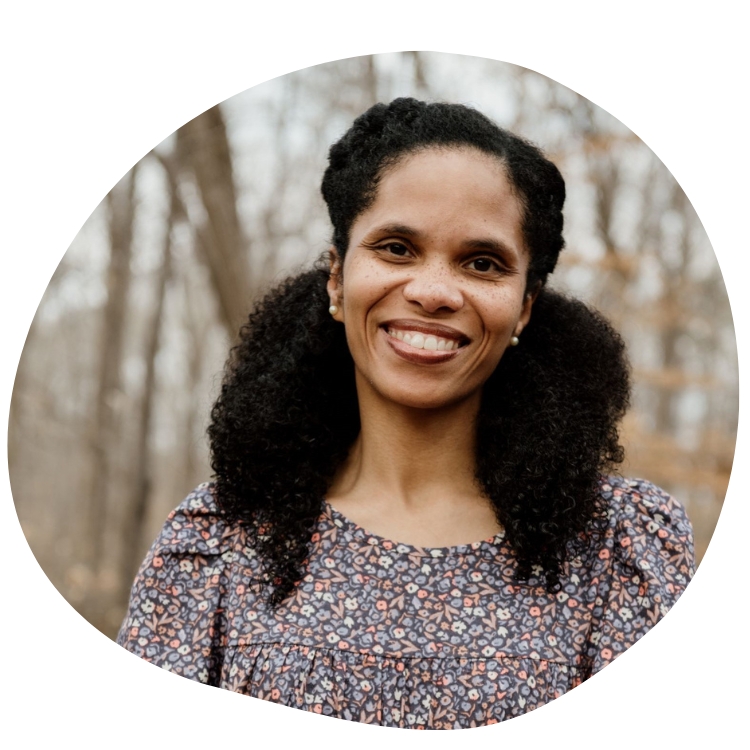[Podcast] Building a Family Heritage through Homeschool with Amber O’Neal Johnston – Part Three

Representation and diversity in media play a crucial role in shaping the self-worth and perception of children. We’re continuing our in-depth discussion (Part One/Part Two) with Amber O’Neal Johnston about her book, A Place to Belong.
On today’s Brave Writer podcast, we’re delving into the:
- importance of representation,
- impact of media algorithms,
- benefits of innovative education methods,
- significance of discussing hard history,
- concept of slow travel and world schooling,
- and importance of affinity spaces.
Show Notes
Nostalgia vs. Inclusion
Let’s be clear: Visual storytelling, across diverse media platforms, has an outsized influence on children’s self-worth and perceptions. Drawing on the wisdom of the late author Belle Hooks, Amber reflects on the ability of screen images to shape our identities and worldviews. Historically, representation for families of color has been insufficient, underscoring the urgency for quality, diverse, and positively affirming programming.
The casting of a black actress as Ariel in Disney’s “The Little Mermaid” brought issues of representation and nostalgia to the forefront. Johnston advocates for an increased diversity in characters and stories, highlighting that a broader spectrum of representation benefits all children, fostering appreciation and celebration of diversity.
How Algorithms Shape Our Media Exposure
Media algorithms try to cater to our tastes by pushing content based on our previous interactions. That might not sound so bad in principle, but it can lead to unintended consequences, such as accidental exposure to inappropriate or shocking material. It’s not just limited to sexual content but also extends to racial, ethnic, and cultural themes. With the rise of AI and media platforms, it’s increasingly difficult to shield our children from everything. Therefore, it’s crucial to teach them how to navigate this digital landscape and handle accidental exposure. The goal is to have open discussions about these issues and ensure that our children are prepared to critically engage with media and make choices that align with their values.
Discussing Hard History
Hard history refers to traumatic and tragic events like slavery and the Holocaust. It’s important to explore these difficult topics, even though it can be challenging and emotionally taxing. Inclusivity should be integrated into our learning year-round, not just during specific months or holidays.
World Schooling and Slow Travel
World schooling is a unique approach to homeschooling where you are doing at least part of your education in another place in the world besides where you’re from. It varies from people who travel often for vacations to people who are full-time nomads and everywhere in between. If possible, slow travel is a great way to approach this. Given a few months in an unfamiliar place, you begin to really get an understanding of what it’s like to live there, to know people and to recognize the unique dynamics there. However you do it, the ultimate goal is to learn from the world around you.
After three hours of discussing A Place to Belong, there is still so much to learn and explore. These conversations around culture and inclusion are relevant and important to any and all homeschoolers, and we hope you’ll continue to learn about it and integrate it into your education.
Resources
- Learn more at HeritageMom.com
- Read: A Place to Belong
- Follow Amber on Instagram: @heritagemomblog
- Start a free trial of CTCmath.com to try the math program that’s sure to grab and keep your child’s attention!
- Ways to Make Sunshine by Renee Watson
- Growing Brave Writers is the essential training you need as a parent to be the writing coach your children deserve! Learn more at bravewriter.com/gbw.
- Sign up for our Text Message Pod Ring to get podcast updates and more!
- Send us podcast topic ideas by texting us: +1 (833) 947-3684
- Want help getting started with Brave Writer? Go to bravewriter.com/getting-started
- Sign up for the Brave Writer newsletter to learn about all of the special offers we’re doing and you’ll get a free seven-day Writing Blitz guide just for signing up: https://go.bravewriter.com/writing-blitz
Connect with Julie
- Instagram: instagram.com/juliebravewriter
- Twitter: twitter.com/bravewriter
- Facebook: facebook.com/bravewriter
Produced by NOVA Media



















